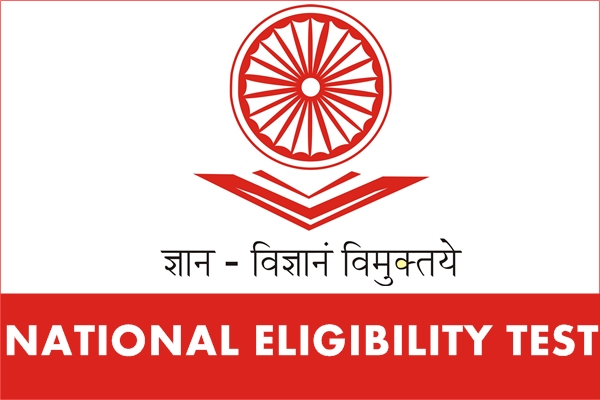The National Eligibility Test (NET) is a competitive examination performed in India. It is a national take a look at that assesses the eligibility of candidates for numerous instructional and research positions, primarily in Indian universities and faculties. NET is run through the National Testing Agency (NTA) on behalf of the University Grants Commission (UGC).

NET Eligibility Criteria
Here are the summarized eligibility criteria for the National Eligibility Test (NET) in India:
- Educational Qualification:
– For Assistant Professor: A master’s degree with at least 55% marks (or equivalent) from a recognized university.
– For Junior Research Fellowship (JRF): Same educational qualification with a possible 5% relaxation for reserved categories. - Age Limit:
– Assistant Professor: No upper age limit.
– JRF: Generally, up to 30 years, with relaxation for specific categories and research experience. - Relaxation in Marks: Reserved category candidates may have relaxation in minimum percentage criteria.
- Subjects and Disciplines: NET is conducted for various subjects, and candidates choose based on their postgraduate degree.
- Citizenship: Candidates must be Indian citizens.
- Number of Attempts: Varies by category, but usually no restrictions for Assistant Professor; limited attempts for JRF.
Candidates should check specific eligibility criteria for the latest information, as they may change over time.
NET Examination Pattern
The NET examination in India consists of two papers: Paper I and Paper II.
1. Paper I:
– Assesses teaching and research aptitude.
– 50 multiple-choice questions (MCQs) worth 2 marks each.
– Duration: 1 hour.
– Topics: Teaching methods, research ethics, communication skills, etc.
2. Paper II:
– Evaluates subject knowledge.
– 100 MCQs worth 2 marks each.
– Duration: 2 hours.
– Subjects based on postgraduate specialization.
No negative markings for incorrect answers. Candidates must meet the minimum marks set by UGC or NTA in both papers to qualify for NET. An optional break is allowed between the two papers.
Understanding this simplified NET exam pattern is essential for those seeking teaching or research positions in India. Refer to NTA or UGC guidelines for a detailed syllabus and current information.
NET Syllabus
The NET exam in India comprises two papers:
1. Paper I (Teaching and Research Aptitude):
– Focuses on teaching methods, research ethics, reading comprehension, effective communication, reasoning, data interpretation, ICT basics, and environmental issues.
2. Paper II (Subject-Specific):
– Tailored to the candidate’s postgraduate specialization. Covers various topics within the chosen subject.
- For a detailed syllabus, candidates should refer to the specific subject guidelines provided by the National Testing Agency (NTA) or the University Grants Commission (UGC). Preparing with relevant textbooks, references, and past papers is crucial. The NET syllabus evaluates subject expertise and suitability for teaching and research roles.
Application Process
Here’s a concise overview of the NET application process in India:
- Registration: Create an account on the NTA’s official website, providing personal details and contact information.
- Form Fill: Complete the online application, specifying the exam, Paper II subject, and relevant educational info.
- Document Upload: Upload scanned copies of essential documents like photos, signatures, and category certificates (if applicable).
- Fee Payment: Pay the exam fee online, depending on your category and paper choices.
- Review & Correct: Carefully review your application for accuracy and make any necessary corrections before submitting.
- Admit Card: Download your admit card once the application is processed and fees are confirmed.
- Exam Day: Appear for the NET exam at the designated centre with your printed admit card and a valid ID.
Career Options After NET
Qualifying for the National Eligibility Test (NET) in India offers various career paths:
- Assistant Professorship: Teach in colleges and universities.
- Junior Research Fellowship (JRF): Pursue research and often a Ph.D.
- Ph.D. Research: Conduct in-depth research and pursue academic careers.
- Research Scientist: Work in research institutions, and contribute to advancements.
- Lectureship: Teach specialized subjects at educational institutions.
- Government Jobs: Qualify for positions like research officers and data analysts.
- Content Development: Develop educational content for platforms.
- Consulting: Provide expertise to organizations and institutions.
- Academic Administration: Contribute to educational policy and curriculum development.
- Publications and Media: Write, publish, or work as subject experts in media.
Conclusion
In conclusion, the National Eligibility Test (NET) in India is a significant examination that not only assesses the eligibility of candidates for academic and research positions but also offers a multitude of promising career avenues. Qualifying for NET opens doors to roles such as Assistant Professorship, Junior Research Fellowship (JRF), research scientist, and many other positions in academia, research institutions, and government organizations.
FAQs About NET
The NET is a competitive examination in India conducted to assess the eligibility of candidates for various academic and research positions, primarily in universities and colleges.
Eligibility criteria include having a master’s degree with a certain percentage of marks, age limitations, and subject-specific qualifications.
The NET exam consists of two papers – Paper I and Paper II. Paper I assesses teaching and research aptitude, while Paper II evaluates subject-specific knowledge.
No, there is typically no negative marking for incorrect answers in the NET exam.



















